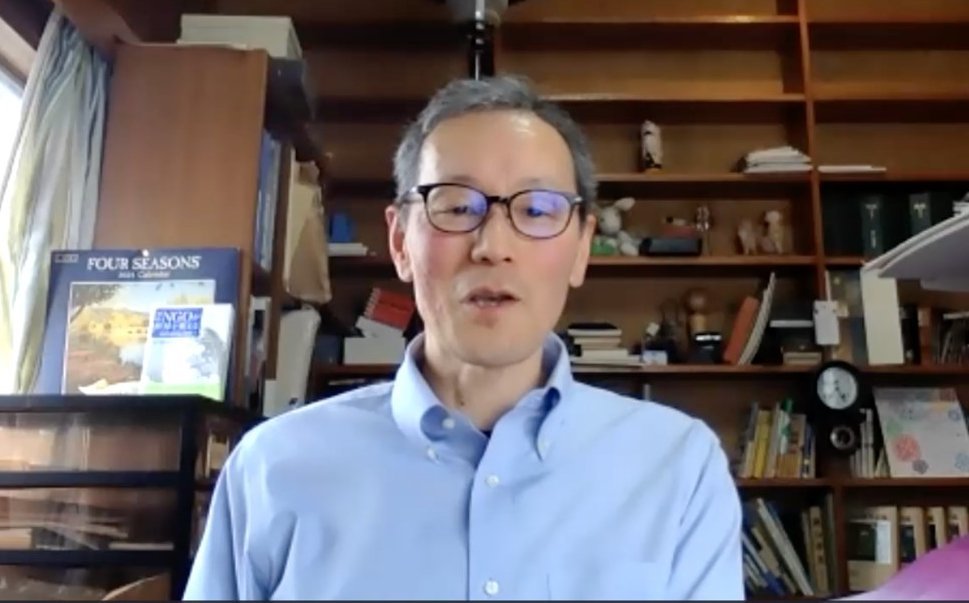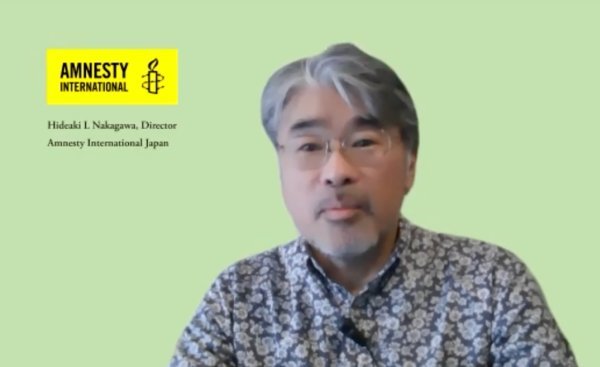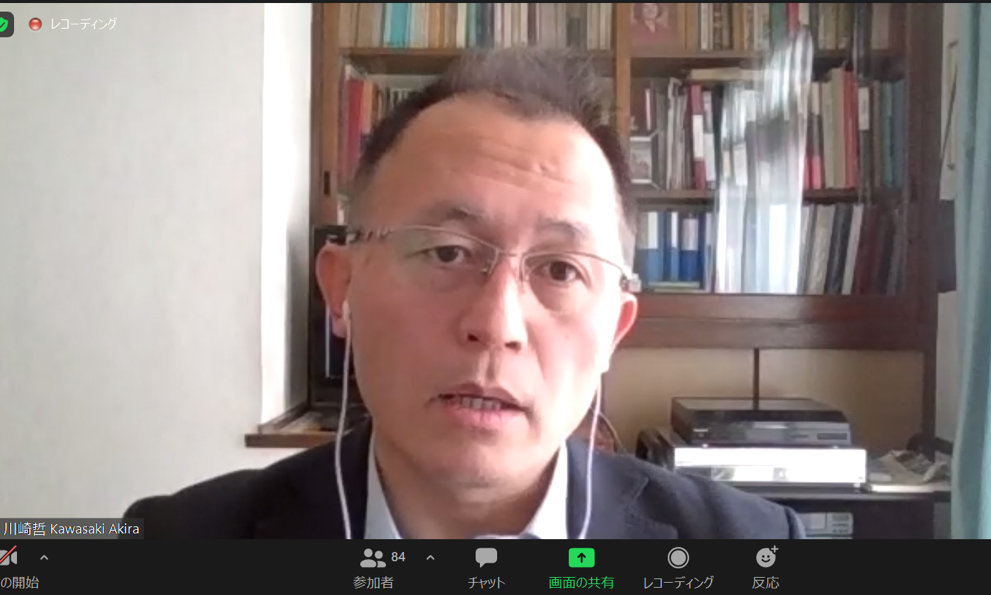NEWS
Global Civil Society Series: Global Trends in Social Impact
Update: March 3, 2021

On February 26th, as part of undergraduate course Global Civil Society (Prof. Katsuhiko Mori: International Relations), fifth open lecture of this series was held. The special guest for this lecture was Mr. Katsuji Imata, Managing Director of CSO Network Japan; also serving as President of Social Impact Management Initiative; and Managing Director of Japan Civil Society Network on SDGs. The theme of this lecture was "Global Trends in Social Impact: Can Stakeholder Capitalism Transform the World in the Right Direction?" The special lecture saw the participation of approximately 80 students.
Mr. Imata began his lecture with the question, "what is a new capitalism?" Mr. Imata jumped into the topic of how roles of the three sectors (government, for-profit or business sector, and non-profit or social sector) have changed over time due to major global events such as the end of the Cold War, the Lehman Shock, the creation of the United Nations Sustainable Development Goals (SDGs), and the most recent development of the global COVID-19 pandemic. Namely, at the heart of large corporations, we find a stronger emphasis on social contribution, corporate social responsibility (CSR), creating shared value (CSV), and a reconsideration of corporate values. In the financial and investment sector we see the rise of socially responsible investment (SRI), ESG (environmental, social, and governance) investing, and impact investing along with a transition to other related keywords. Finally, among the social sector we see an increase in social entrepreneurship and social enterprise.
As Mr. Imata continued to introduce more advanced cases, we saw the discussion turn to pioneering efforts attempting to reset capitalism from the current standard of "shareholder capitalism," to the aforementioned new capitalism, "stakeholder capitalism." Mr. Imata's conclusion on the topic was to emphasize that in a world where the SDGs have been fully adopted, we must address any subsequent problems with a united strategy among the government, business, and social sectors where common goals and targets exist, and the activities of all three sectors are continually assessed and evaluated based on social impact management.
Comments and Thoughts from Participants:
- In looking at the evolving idea of capitalism through the 20th and 21st centuries, it was useful to understand the distinction between shareholder capitalism and stakeholder capitalism. Additionally, with the idea of a carbon-free society finally gaining active support, despite the underlying support having governmental motives and business interests, I believe stakeholder capitalism has achieved broad social recognition.
- It is interesting how in paying attention to the social sector to begin with, humanitarian and ethical values then transition to influence trends of public perception and values. Personally, I would like to engage in pursuits which not just bring profit to shareholders and companies, but rather a wider form of "profit" that benefits the public domain. This includes my desire to choose my future workplace based on the criteria of whether they are conscious of sustainable society and practices.
- Despite the positive impact of "non-profit" and "non-governmental" groups, I feel that in defining these groups by what they are not takes a decidedly negative approach to their initiatives. On the other hand, using words such as "civil society" with positive imagery tend to shed light on the "positive" impacts of these groups.
- Recently, the awareness of the SDGs within Japan has risen sharply, and we see the SDGs keyword being used more frequently in the news. It is crucial for large corporations, government, and a wide variety of fields in general to do their part to address the problems we all face. I think that as more citizens begin to take notice of social issues, stakeholders will catch on to this development and make changes to their actions. I feel that the next challenge will be in choosing how to assess and evaluate these changing actions being made by stakeholders, especially with emphasis on their long-term impacts. A further issue is how we might go about obtaining quick results on especially urgent issues, such as the environment.




